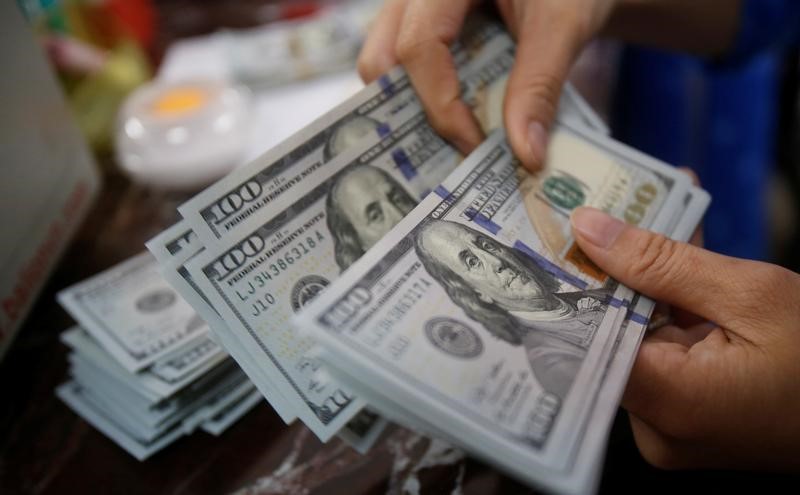By Shinichi Saoshiro
TOKYO (Reuters) - The dollar rose to a six-day high against the yen on Wednesday as crude oil prices rallied and pushed Treasury yields higher after U.S. President Donald Trump pulled out from an international nuclear deal with Iran.
The greenback also gained on the euro as concerns about Italian political turmoil hurt the common currency.
The dollar was 0.3 percent higher at 109.480 yen
The dollar index against a basket of major currencies (DXY) was marginally higher at 93.206.
The U.S. currency was lifted as long-term Treasury yields climbed to two-week peaks with crude oil prices surging more than 2 percent to their highest since November 2014.
"The dollar is firmer overall, particularly against the yen, stirred once again in the aftermath of President Trump's decisions with U.S. yields rising and oil on the move," said Bart Wakabayashi, Tokyo Branch Manager of State Street.
"Opinion seems divided among market players on how far higher U.S. yields can go, so the dollar could be in for turbulence going forward."
The 10-year Treasury note yield (US10YT=RR) was about 2 basis points higher at 2.989 percent. A rise above 3.035 percent scaled on April 25 would take it to its highest since early 2014.
Trump on Tuesday pulled the United States out of an international nuclear deal with Iran, raising the risk of conflict in the Middle East, upsetting European allies and casting uncertainty over global oil supplies.
The euro lost 0.05 percent to $1.1857 (EUR=) after sliding as low as $1.1838 overnight, its weakest since Dec. 22.
The common currency, already under pressure from weak economic indicators and widening U.S.-euro zone interest rate differentials, was also hit by political developments in Italy.
Italian President Sergio Mattarella's call to bickering political parties to rally behind a "neutral government" was met with immediate opposition and raised the prospect of elections as early as July.
"The dollar is in a firm position to gain against its European peers as rhetoric from central banks such as the ECB and the Band of England is perceived to have turned dovish," said Shin Kadota, senior strategist at Barclays (LON:BARC) in Tokyo.
The euro was 0.25 percent higher at 129.830 yen (EURJPY=) after plumbing a six-week low of 129.240 on Tuesday. It was on track to end a seven-day losing run.
Sterling traded at $1.3533
The pound has fallen heavily in recent weeks on expectations the BoE would not, as earlier believed, tighten monetary policy because of a relatively weak economy and as investors piled into a rallying dollar.
The Australian dollar extended its overnight slide to touch an 11-month low of $0.7424
Pressured by the dollar's broad strength, the Aussie has slid despite an upbeat budget from the country's government.
The New Zealand dollar was little changed at $0.6968

The Reserve Bank of New Zealand is widely expected to stand pat on monetary policy when it meets on Thursday but the event was still approached with anticipation as it will be the first under new Governor Adrian Orr.